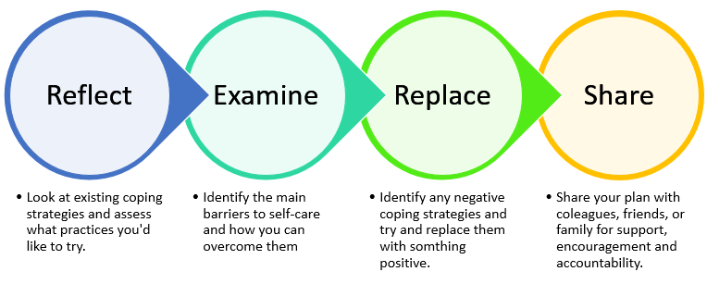
Social network - sharing your problems with someone in your support network won’t fix anything immediately. However, it allows you to share your feelings, get support, receive positive feedback and discover possible solutions to your problems.
Look after yourself - having a healthy diet, engaging in regular physical activity, ensuring you have plenty of sleep - all of these things will help you develop a resilient mindset. If you want to try something new, yoga, meditation and deep breathing are all associated with developing mental resilience.
Think short term - resilient people have the ability to reassure themselves that stressful situations do not last forever and that the associated negative feelings will eventually dissipate. The ability to establish goals will also help you view these situations in a realistic way and then set reasonable goals to deal with the problem.
Ask for help - many people believe that being resilient is to be mentally strong enough to take on challenges alone. But in fact, the ability to know when to reach out to others for support is a key component of being resilient.



 Friends and family - Sometimes just telling the people close to you how you're feeling can make a big difference – and they might be able to help you out in other ways too.
Friends and family - Sometimes just telling the people close to you how you're feeling can make a big difference – and they might be able to help you out in other ways too.